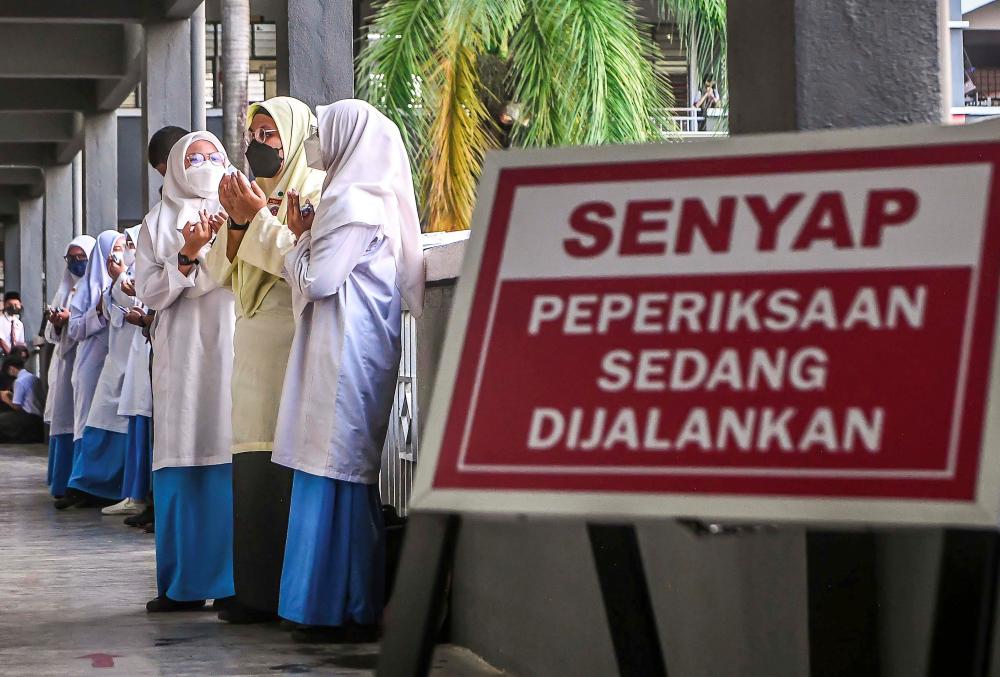THE proposal to make Form Five education mandatory for school students is laudable, but it has to be viewed from a larger perspective.
It has been reported that more than 20,000 students did not sit for the Sijil Pelajaran Malaysia examination over the last two years. It was noted that the Covid-19 pandemic, family issues and financial constraints were the reasons the students did not sit for the examination.
The Education Act stipulates that all children should complete their primary education, but there is no Act that mandates students to complete their secondary school education. This is why many secondary school students drop out of school and choose to work, to support their parents’ income. Some help in the family business while others may take up a skill and develop a trade.
Some of these students, through sheer determination and hard work, are able to earn a living and get through life. But why do students choose not to complete their secondary education?
Poverty seems to be the main reason. Secondary school education is not free, although books are loaned and there is no school fees, yet they have to buy other schooling paraphernalia.
Financial constraints can force students to opt out of school.
Generally, students who drop out have been academically-weak since primary school. Most of them have had poor grades. Some are not able to read and write even after spending six years in primary school.
Some parents feel it is a waste of time and resources sending their children, who have fared poorly in their final Year Six examination, to secondary school.
In addition, weak students moving up to Form One are normally streamed and placed in the weaker classes in school. Some of them are bullied and mocked by the brighter students.
There are also some teachers who make life difficult for these students, and label them as “problematic”. Being dejected and demotivated, many of these students skip school regularly, and end up missing most of the academic year.
When they leave school, it is no wonder they are still illiterate. Therefore, instead of continuing their education to secondary school, these students prefer to work, to supplement the family income.
There are remedial and reinforcement programmes for slow learners in secondary schools, but most of them lack continuity and commitment from both the students and teachers.
Secondary schools should become relevant and useful for weak students. Dedicated and committed teachers should be assigned to oversee them.
There should be workshops, educational trips and hands-on-learning for those not academically-inclined. The schools should cater to the needs of these students, so they will be motivated to come to school on their own volition, and not have to be forced.
Learning should be fun and experiential. Make classrooms conducive to teaching and learning. Overcrowded classrooms can be a challenge for both students and teachers, and can prevent individual attention and learning. Improve infrastructure in schools with state-of-the art learning amenities.
Students who have financial constraints should be given cash assistance and bus transport fees, that should be borne by the schools. Meals, such breakfast and lunch, should be provided for students with financial constraints during break times. Schools should take the responsibility and look into the welfare of every student.
Only when we look into these matters seriously, can we mandate secondary school education. Students should be able to leave with a basic Form Five certificate when they leave school.
The time spent in secondary school should transform a student physically, mentally, spiritually and emotionally. No child should be left behind in this holistic vision of secondary school education.
Comments: letters@thesundaily.com













